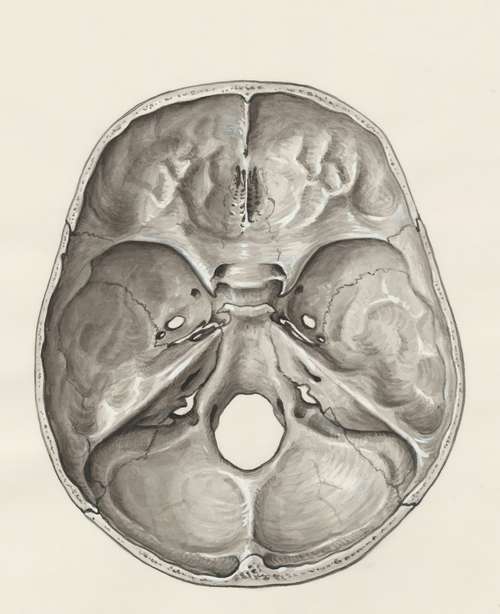The latest study on Alzheimer's has shone new light on a surprising factor that many of us may not have considered: low brain lithium levels. It turns out that a deficiency in this naturally occurring element might be more closely tied to the onset of Alzheimer’s disease than we previously thought. Imagine if a single missing ingredient could alter the way your brain functions – that’s exactly what the study suggests.
This isn’t just another piece of research; it’s a potential game-changer for Alzheimer’s research and prevention. It seems that measuring lithium in brain chemistry could soon become as routine as checking blood pressure. So, is it possible that replenishing lithium levels could stave off or even reverse brain damage? Keep reading to find out more about what this could mean for millions of people around the world.
Alzheimer's Linked to Low Brain Lithium Levels
Understanding the Study Findings
The study, published by a team of renowned neurological studies experts, indicates that individuals with Alzheimer’s tend to have lower brain lithium levels compared to healthy controls. In this fascinating research, scientists noticed that a deficiency in lithium – a mineral known for its role in mood stabilization and neural function – appears to be an early marker of cognitive decline and Alzheimer’s disease. This aspect of brain chemistry is crucial, and it might serve as one of the warning signals needed for early diagnosis.
When I first came across this study, I couldn’t help but think of how important tiny elements are to our overall health. Even if lithium in its natural amounts is present in our diet, it might not be adequate for our brain health. In other words, it’s like a missing puzzle piece. The study has set the stage for further exploration into whether boosting lithium and probing its neuroprotective effects could be an effective strategy in Alzheimer’s prevention.
The results are stirring up conversations all over the neurology field. Many experts believe that if we can pinpoint and correct lithium deficiency early on, we might be looking at a way to slow or even reverse some of the damage associated with Alzheimer’s. This certainly paves the way for additional clinical trials and further investigation into lithium and Alzheimer’s, raising new hopes for future treatments.
The Role of Lithium in Brain Health
Lithium is not just a battery component—it plays a significant role in our brain’s inner workings! The mineral is known to support mood regulation, reduce inflammation, and promote the expression of proteins that keep neurons healthy. Neurological studies have suggested that lithium helps to protect the brain against the toxic build-up that can lead to conditions like dementia and cognitive decline.
In this latest Alzheimer's research, low brain lithium levels served as a potential early flag for the disease. It’s as if our brains are whispering for the help they desperately need. Researchers have drawn parallels between lithium’s neuroprotective capabilities and its potential use in therapeutic interventions. In fact, clinical experts argue that adding dietary or supplemental lithium might offer benefits previously unexplored, much like rediscovering an old remedy that just needed a new twist.
Interestingly, the study noted that the link between lithium deficiency and Alzheimer’s is not solely about the mineral itself, but about how brain chemistry is delicately balanced. Deficiencies in such a vital element could be part of a domino effect that pushes brain health into decline. This perspective turns the conventional approach to addressing Alzheimer's on its head, suggesting that even small interventions might have a monumental impact on dementia and overall cognitive function.
Implications for Alzheimer's Research and Prevention
The findings from this study are not only scientifically intriguing but have practical implications for Alzheimer’s prevention and treatment. What if a simple change in diet or the introduction of a safe supplement could prevent or delay the onset of Alzheimer’s? The idea is both revolutionary and hope-inspiring.
Recent neurological studies are increasingly focusing on preventative measures, and this work on low brain lithium levels reinforces the value of early detection. Health practitioners and researchers are now more eager than ever to explore how lithium could play a role not only in treating but also in preempting Alzheimer’s disease. This emerging trend invites us to think about how we can modify our lifestyle to maintain brain health and potentially reduce future risks of cognitive decline.
In real-world terms, these findings could lead to simple yet profound changes in how we approach mental health. Clinicians might soon incorporate assessments of lithium levels into routine checkups for at-risk populations. Imagine being able to get a blood test that alerts you to a possible lithium deficiency, which might be quietly undermining your brain’s resilience. This is a scenario where science meets everyday health practicalities.
The discussion surrounding low brain lithium levels has heightened public awareness regarding the multifaceted nature of brain health. With Alzheimer’s prevention now seen through a lens where minor dietary tweaks could yield major benefits, the community is buzzing with discussions on what additional steps might work alongside conventional treatment methods. The prospect of personalized nutrition plans targeting specific neurological needs might just be on the horizon.
The Future of Lithium in Alzheimer's Treatment
Looking ahead, the study opens exciting avenues for future research. Clinical trials will soon be testing the impact of lithium supplementation on individuals already showing early symptoms of Alzheimer’s. Early evidence suggests that restoring lithium levels in the brain might help reverse some of the molecular damage associated with the disease, a breakthrough that has many experts cautiously optimistic.
You might wonder if this means we’re on the cusp of a revolutionary treatment for Alzheimer’s. While it’s too early to be definitive, the growing body of evidence points towards lithium’s potential role as a neuroprotective agent. Think of it as a safety net for your brain; by focusing on these small yet impactful changes in brain chemistry, we might be able to outmaneuver the progression of dementia and cognitive decline.
This is undoubtedly an exciting time for Alzheimer’s research, and it underlines the importance of keeping an open mind towards innovative treatment strategies. As we continue to learn more from these studies, the integration of lithium into preventative care might very well become a standard part of brain health management. The implications of this research extend far beyond just a single study—they could transform how we understand and treat neurological disorders in the future!
With more research on the horizon, experts and the public alike are eagerly anticipating the next chapters in this unfolding story. It’s a reminder that science is always evolving, and that even well-established fields like neurodegenerative diseases can be revolutionized by fresh ideas and new evidence.
Conclusion: A Hopeful Step Forward
To wrap things up, the link between low brain lithium levels and Alzheimer’s has opened an important dialogue in the medical community. This research underscores the intricate connection between brain chemistry and neurological health, encouraging new perspectives on dementia and cognitive decline. If future studies confirm these early results, we may well see lithium becoming a cornerstone in Alzheimer's prevention and treatment strategies.
It’s an exciting time in Alzheimer's research, and the journey toward better understanding and perhaps even reversing brain damage continues. By keeping our minds and bodies nourished with the right elements, we might just be able to protect our most precious asset: our brain. Here’s to hoping that such insights will eventually lead to effective strategies for combating Alzheimer's disease for the benefit of us all!




